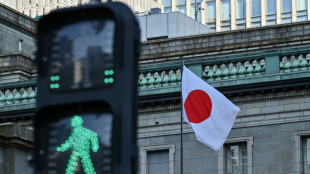

Schiphol CEO quits over Amsterdam airport chaos
Amsterdam's Schiphol airport chief executive Dick Benschop announced his resignation on Thursday following months of chaos at one of Europe's largest transport hubs, plagued by long queues and baggage handling issues.
The troubles at Schiphol were among the worst in a summer where the global aviation industry struggled to cope with a surge in travel due to staff shortages after laying off thousands during the Covid pandemic.
Benschop's decision comes as Europe's second-largest airport again on Monday asked airlines to cancel flights and passengers had to stand in line for hours before catching flights.
"There is a lot of attention, and also criticism, for the way in which Schiphol is tackling the problems and for my responsibility as CEO," Benschop said in a statement.
"I am making room on my own initiative to give Schiphol the space to make a new start," he said.
Benschop warned that Schiphol was due to announce further "bad news" measures "today or tomorrow for the coming weeks" which will lead to further disruption at the airport, which at its peak in 2019 handled almost 72 million passengers.
Benschop, a former top manager at Shell and deputy minister announced his resignation at a meeting of the airport's supervisory board on Wednesday night.
"He will remain in his function until a successor has been appointed," Schiphol added in the statement.
Benschop last month blamed the long queues over the summer, which saw numerous passengers miss flights despite arriving hours ahead of departure -- on staff shortages.
Baggage handlers earlier this year walked off the job in a wildcat strike and lost and unclaimed luggage remains a problem.
The airport reduced passenger numbers since July in an effort to bring down waiting times.
Schiphol also paid staff bonuses for the busy summer months, but many of those are set to finish at the end of September, while others had already ended.
"Improvements have been made over the summer, but these are not enough," said Jaap Winter, who chairs Schiphol's supervisory board.
He too warned further limitations on capacity may be necessary and that Schiphol more measures were needed to guarantee the airport's security.
"As a national and international airport, Schiphol must return to the level of quality that passengers and airlines are accustomed to," Winter said.
- 'Need action' -
Aviation companies as well as trade unions said they were sorry to see Benschop go, but understood that his position at the airport was untenable.
KLM chief executive Marjan Rintel told the NOS public broadcaster she understood why Benschop made the decision "given the ongoing chaos."
The FNV umbrella labour federation, which represents many of Schiphol's employees, said it was "surprised by Benschop's decision" but understood why he stepped down.
"I'm not sure a resignation is necessarily going to bring us closer to a solution," FNV spokesman Jaap van Doesburg said.
"What we rather see is action to solve the problem," he told the NOS.
"Benschop, over the long-term took steps to go for quality rather than quantity at the airport," said the ANVR, the umbrella organisation for Dutch travel companies.
"But this means that the problems have not been solved in the short term -- and that is terrible," ANVR director Frank Oostdam said.
Passenger numbers at Schiphol plummeted from over 70 million in 2019 to 20.8 million in 2020, the first year of the pandemic and to 23 million last year.
In August, however, 5.2 million passengers passed through Schiphol's gates, as opposed to 3.8 million last year at the same time and 1.8 million in 2020.
S.Lambert--JdB



